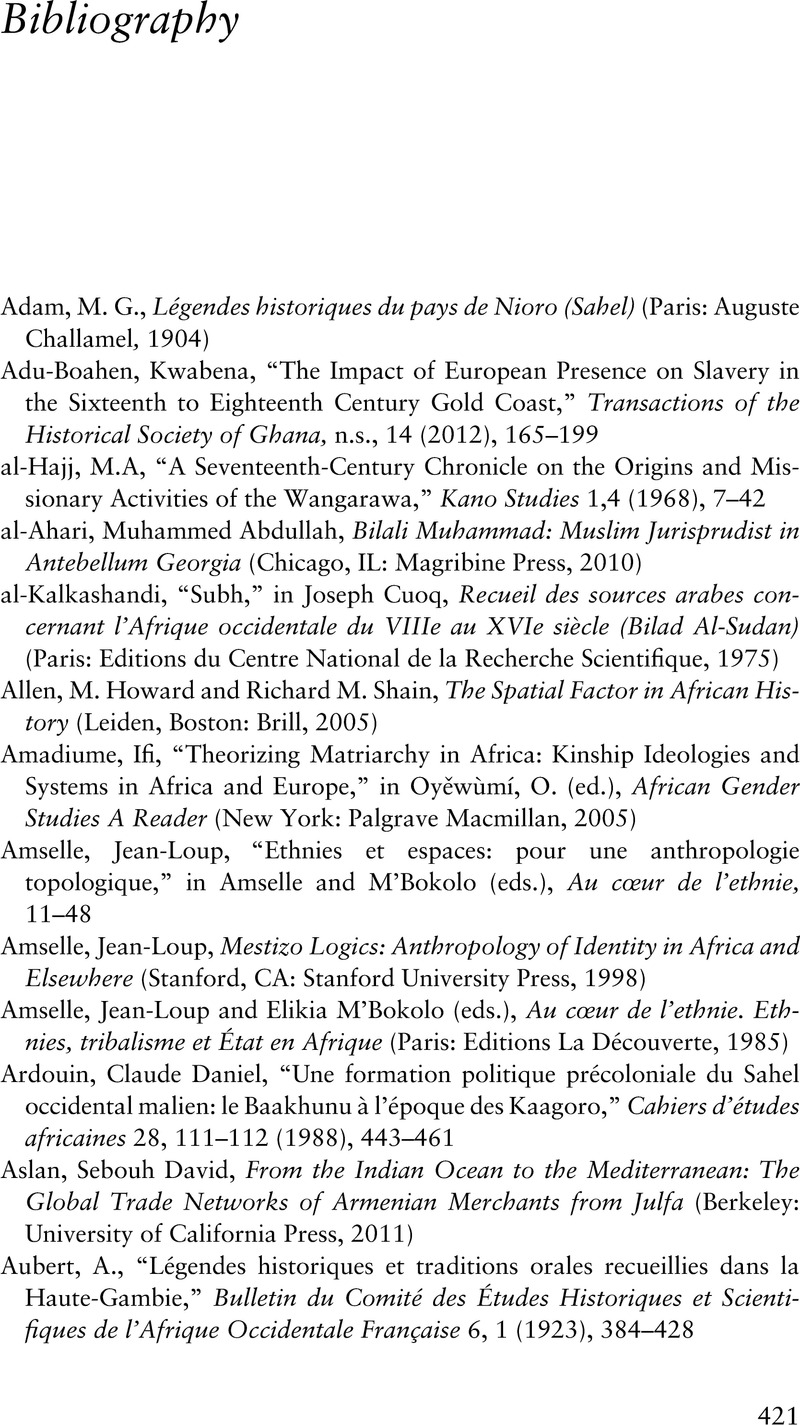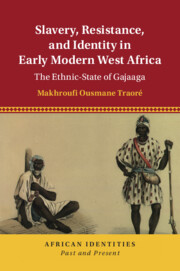Book contents
- Slavery, Resistance, and Identity in Early Modern West Africa
- African Identities: Past and Present
- Slavery, Resistance, and Identity in Early Modern West Africa
- Copyright page
- Contents
- Figures
- Tables
- Preface
- Acknowledgement
- Introduction
- Part I Between the Sahara and the Atlantic Ocean
- Part II Atlantic Slavery, Kingship, and Worship of Nature
- Part III Gajaaga at the Center, the French Empire at the Edges
- Conclusion
- Bibliography
- Index
- References
Bibliography
Published online by Cambridge University Press: 16 November 2023
- Slavery, Resistance, and Identity in Early Modern West Africa
- African Identities: Past and Present
- Slavery, Resistance, and Identity in Early Modern West Africa
- Copyright page
- Contents
- Figures
- Tables
- Preface
- Acknowledgement
- Introduction
- Part I Between the Sahara and the Atlantic Ocean
- Part II Atlantic Slavery, Kingship, and Worship of Nature
- Part III Gajaaga at the Center, the French Empire at the Edges
- Conclusion
- Bibliography
- Index
- References
Summary

- Type
- Chapter
- Information
- Slavery, Resistance, and Identity in Early Modern West AfricaThe Ethnic-State of Gajaaga, pp. 421 - 437Publisher: Cambridge University PressPrint publication year: 2023

